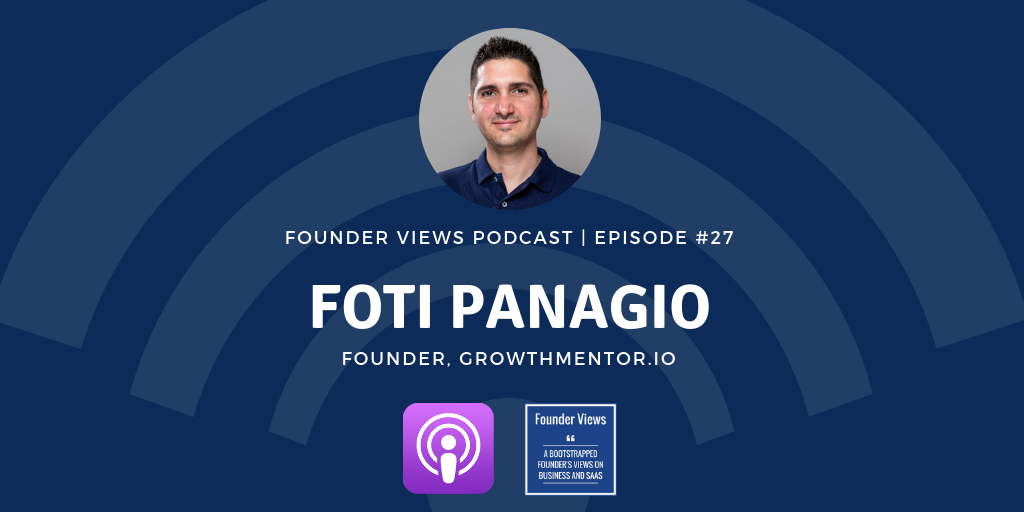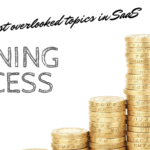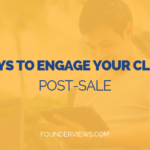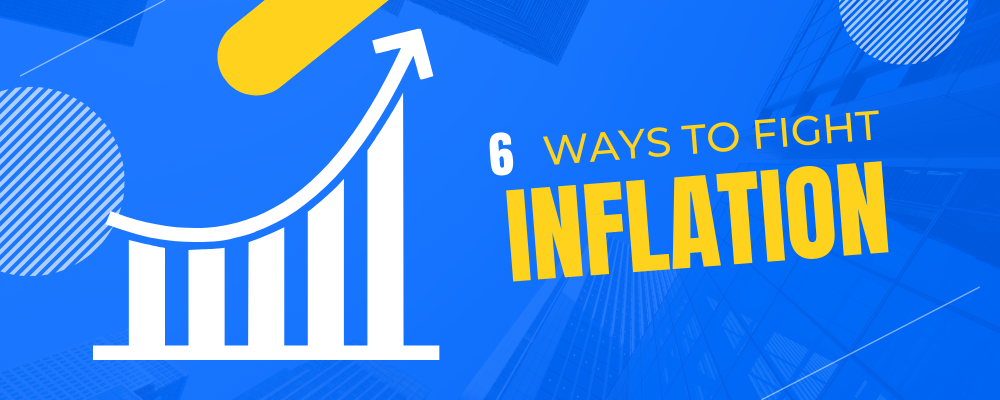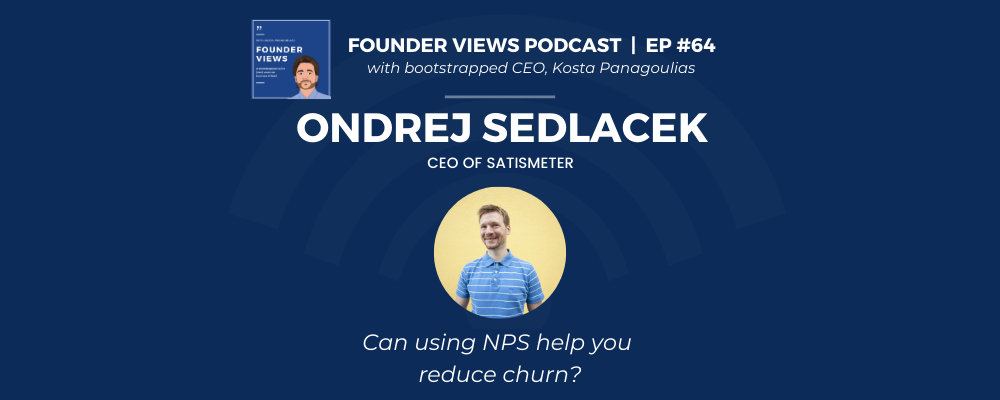Subscribe to the Founder Views podcast on Apple, Google, Stitcher, or wherever you listen to your podcasts! The transcript for this episode is below.
Kosta: This is a very special episode of founder views. This is episode number 27, but that’s not why it’s special. It’s actually the very first episode where I’m bringing on a guest and it’s not just myself talking away. So in this episode I’m speaking with 40. He’s the founder at growthmentor.io, a platform where you can get advice and mentorship from vetted experts. I’m very pleased to say that I’m actually a mentor on the platform as well, which is pretty awesome. So this was a very fun and insightful chat. A lot of great takeaways from this episode. So without further ado, here’s my chat with 40. Alright, well thank you so much for being on the founder views podcast. Appreciate it. My pleasure. Looking forward to that. Okay. So if you want to kick things off, just tell our audience a little bit about your background, where you’re from, past projects at anything, uh, for us to get to know you a little bit more.
Foti: Sure, sure. So I was born in Florida and the states, uh, to hugely patriotic Greek parents and uh, yeah, 15 years later my dad had the idea to emigrate, the whole family back to Greece and uh, yeah, so since 15 to now 33 and a few days I’ve been living in, in, in Greece, I wants to an American private school for high school international. So that was great. It wasn’t too much of a crazy transition. And then I went to London for university, started to finance over there. I graduated 2007. So for any of the, uh, guys that were trying to find jobs back then, just getting out of uni wasn’t really that easy to get a job in finance in 2007, 2008 because of the crash. So at that, at that point I decided that, okay, this isn’t really going to work out, it’s not really in the mood to uh, know chase this corporate style work.
Foti: Anyways. So yeah, my, my brother at that time had started a startup, a hosting company back in 2004 and it was, it was growing pretty quickly and he’s like, just come work with me man, you know, just just joined. I had no idea about anything technical or anything marketing really. I mean I was entrepreneurial in, in, in like mindset, but uh, I guess that was enough back then to get started. Um, it was the beginning of the seo days, so everyone was going wild with a link building, web wordpress comments. So it was, it was pretty fun to start learning because any, anything that you did kind of like caught on and actually had a pretty big impact. So I took over the marketing for euro vps and had to learn everything from scratch pretty much I was like a one man team doing marketing.
Foti: Everybody else was an engineer. So yeah, that’s, that’s pretty much been what I’ve been doing for the last 12 years. I’ve just been head of head of growth at your vps so that, that, uh, that journey has been quite interesting. A lot of, lot of developments, uh, personally and also in the company growth and uh, that, that job actually was the inspiration for what I, what I’m currently working on a growth mentor. So through that process of like having to learn things by myself and all of that make too many decisions by myself, I ended up getting a really lonely in a sense. Uh, and I, I had this, I figured out that there’s this productivity hack that I could do when I’ve, I never, I didn’t really know exactly like what to do, what decision to make. I would make a job posting on upwork for help and I really felt helped just to, just to talk to somebody.
Foti: So for example, my first foray into facebook ads ad words, I got started in quite early, um, and that was pretty self explanatory if you, if you go through the motions and, and read and practice, have enough money that you can kind of like waste. That’s pretty much what always happens with that in the beginning. But with facebook ads was completely different demon. So that’s when I went to upwork and I’m like, all right, 30 minutes, 30 minutes when I posted this job, 30 minute call with an expert in facebook and I looked through the job through that locations and are really experienced guys. I was like, Holy Shit, all these, all these people here I can just talk to them. Just pick their brains for half an hour and a, I chose, I chose one guy based in San Francisco. The time zones are a bit screwed up.
Foti: I didn’t hear and I showed him pretty much what I was planning on doing. And he’s like, you know, this is actually really good. And I was like, Holy Shit, are you free for like I had never really done it before. And yeah, that, that sort of like positive reinforcement and gave me that, that impetus that motivate like that just to kick me into gear, just do it and they stop reading blog posts on it so that I know sort of your ah ha moment. Yeah, exactly. That was my Aha like this, this APP. I like this, you know, and then like as time passed I would make more of these postings like I was creating a customer success initiative at the company because we had some issues with churn and I wanted to figure out like I want to improve the email marketing a drip workflows.
Foti: Um, and I talked to a customer success specialist. I got shit loads of good ideas from that guy, you know, and he was just doing this over and over again. And uh, I was just like in shock at how, how, how productive it was for me because it cut like my research time I reading and kind of like reading blog posts and doing courses like 85 percent. And I had, I was spending a lot of time on that because I don’t really have a big team around me and I have to get things done, so if I can just focus most of my time on doing and then if I have a specific bottleneck I can like find someone talk to them, that’s where I’m going to do.
Kosta: Yeah. That’s awesome. So track back a little bit. I like what you said there, you, you, you sort of started your entrepreneurial journey, but it started through your mindset and I think that’s, that’s so important. Do you mind elaborating on that a little bit and how mindset plays an important role in your journey?
Foti: Yeah, yeah. Mindset is key. Like if you don’t have the right mindset then I feel like you can, you can fix your mindset if, if you, if you really want to, if you. But for me, like there was one pivotal moment that sorta like forged my mindset and I was in third grade and I was in ms dot mercer class and we were, we were talking about arts, right? And it was, we’re going over the renaissance period and it was about the Italian sculptures, specifically Michelangelo and we were talking about the statue of David and one of the quotes that Michelangelo apparently said, which was like one of his most famous one is every block of stone has a statue inside it. Right. And it’s like the task of the sculptor to discover it. And for me what that, what that meant was like there’s always a way you just have to find it.
Foti: I think it might not be self evident straightaway. Like you might have to fail a couple of times, but there’s all like, I’ve, maybe you’re not the one that should be doing the development where the, where the marketing, maybe you have to hire somebody else, maybe you need to like completely pivot. But there’s, if you know, if you have like a goal, right. And you can visualize it, there’s a way to do it. It’s just you have to believe that. And I think that that was like a pivotal moment in my mind sort of life
Kosta: for sure. It’s funny, one of my previous podcast, it is a bone, it’s called just fucking do it. And uh, I think for a lot of people, fall short is, you know, you hear a lot of people just talking about things, how this great idea, I want to do this, uh, but it’s always talking to, there’s never execution and I really think the only thing stopping people are their own limitations and excuses. So I mean the end of the day you really just gotta just stop thinking about what you’re doing and just fucking do it as my past podcast is all about. So you briefly touched upon your new project growth mentor.io. What is it exactly? Tell us a bit more about growth meant or.io and what it’s all about them.
Foti: Yeah. So growth mentor.io is a two sided marketplace where you can sign up for free and filter and browse through vetted startup and growth marketing mentors and just book calls. So these calls can be 15 minutes, 30 minutes or 60 minutes and you book it, put your credit card and tell them what you want to talk about and choose a time on their calendar and you exchange the skype or zoom or Google hangouts. It’s platform agnostic so we don’t force you to use our, like, you know, buggy web rtc or the telephone or something. It’s just tools that you’re used to. And then you just add talk and that’s say like if you want to talk about something tactical like do a screenshare and maybe get a Ux and like look at your, uh, your site and do like a real time conversion rate optimization walkthrough.
Foti: You can do it right. You want to just talk about how pissed off you are that you just burned through like $10,000 in ad spends and like you didn’t really break even like you can do it. You just talk. I feel like there’s something really Cathartic about just opening your goddamn mouth and just talking out loud, like verbalizing those thoughts in your heads is so powerful for me. Like that. That’s it. I did a little bit of research on this and why it’s so powerful. Apparently it activates the frontal left lobe of the brain, probably slaughter in. Exactly. Maybe it’s the writer liquid. It does something to your brain which helps with rational problem solving by just saying things out loud. So I think that’s, it’s the benefit of talking to somebody is not just like, yeah, okay, I have a specific answer, but you, you’re forced to kind of verbalize your thought process and you can kind of spot when you say it out loud, a logical holds and what you’re saying and it makes you kind of realize that. That’s interesting. Interesting.
Kosta: Um, I didn’t know the science behind it, but that’s actually one of the reasons why I started a podcast because like, I’ve been a writer, I always write down my thoughts ever since I could remember. It sort of helps me clarify what I’m thinking about and just understand things better and sort of evolved into a podcast, uh, which helps me for the same reasons. So that’s pretty interesting. So it sounds pretty girl mentor, dial sounds pretty simple and straightforward. Uh, you mentioned you, so there’s mentors. Where are these mentors from and how many are currently on the platform?
Foti: So right now we have 55 mentors on the platform and they’re from all over the world. I Have Italians, Portuguese, a lot of Americans. It’s just a lot, right? Like from different. It’s very diverse and I, I liked that about it that you can. Oh yeah. One, one. Tangents about the diversity because you asked where they’re from is that you can filter by language in Seoul, if not everyone is an American, a Canadian or a Brit, right. Like there’s entrepreneurs and startups in Italy and Portugal and they have the same needs as, as, as English speakers as well. They want to verbalize and they want to get some help. So I wanted to make this platform really easily accessible to be used by people that are non native English speakers and kind of filter and find people that are. Because I currently live in Greece right now and there’s not really this huge startup community over here and there’s not a lot of growth marketers.
Foti: So I know that Greeks would love to do this, but they don’t really speak English, a lot of them do very well, but I mean, it’s always nice to talk in your, in your native language, but in terms of beyond the, where they’re from and all that, like who these people are, like the criteria are kind of malleable at them. Like that’s not 100 percent like cemented, but the general gist of it is that five years minimum experience and growth marketing or building, uh, startups and uh, yeah, you have to have a growth mindset. So they, they go through a two to phase vetting process where they fill out an application form. And then the second phase is a interview call with me and that’s where I do like a psychographic little evaluation of if there are people people are not. And uh, yeah. Then I basically decide judge, jury, executioner. It’s not very scientific. I know, but I mean there’s no other way right now. I’m not going to overly complicated for no reason.
Kosta: Perfect. Yeah. You sort of answered my next question, which was, uh, you know, what you look for in mentors and sort of what qualifies someone to be a mentor and a full disclosure to listeners. Uh, I am a happily a mentor on growth meant or not io, which is pretty cool. But yeah, so everyone is properly vetted these wrong professionals with certain skillsets and attributes that would obviously be valuable to someone seeking out a particular advice of course. Uh, so mentors are pretty diverse and experiences. What about geographically? Are most mentors spread out around the globe? For the most part?
Foti: Yeah. It’s spread. It’s spread. I didn’t, I mean I think if I had to like make a pie chart of geography is probably the United States would, would be winning right now. But uh, yeah, that’s uh, it’s not like cherry picking one over another. There’s, there’s talents all over the
Kosta: else. The world is shrinking year by year. Yeah. Um, so how long has growth mentor had been been live now?
Foti: So it’s been live since September fourth. That’s the official sort of like launch date.
Kosta: Okay, nice. Any are you able to share? Maybe one or two success stories of mentees who saw value in the service.
Foti: Yeah. So our, our first, our first booking actually happened from a phd students who was doing a, uh, her final thesis and it entailed creating the business plan and for her, for her business. So she, she booked a session with the mentor to help her through that process, so just goes to show like the diversity of use cases of just talking to people and she, she booked a course with um, well I think it was matt manage who has like a lot of experience in, in vc and raising financing for other startups. Kind of like an old timer. Uh, but yeah, that, that, that really helped her out and she, at the end of the call, she, she, she left a review and she said that now actually she’s probably thinking about maybe she can after she graduates, she can take that business plan that she made for her academic for academic reasons and actually turn that into reality.
Foti: So that was really nice to hear. Uh, another, another case was assess a founder who is looking for financing and yeah, I mean, uh, just picking the brains of people who’ve been there and done that before. Right. Who’s got, who’s secured financing? I think it’s for financing. It’s a really, really tricky fields, right? Like I know you’re a bootstrapped and everything, but for so many other startups they, I can’t, I hate to say like they read, they read, they needed because as I said earlier, like there’s always a way, right? You can always do it, but uh, yeah, it’s uh, it’s a Turkey
Kosta: food shopping is not easy and I think most people would probably fall into that, you know, I need the money category because you know, a bootstrapping requires a whole nother character traits and people just being super conservative and lean and you know, as entrepreneurs or it might be tough to have that thought sometimes because you always want to push further and spend to grow type of mentality. So very different. So yeah, definitely a lot of value in the service. Clearly. I mean in just picking the brains of professionals,
Foti: I’m using it. I’m using a personally like I had, I had to, I had two calls yesterday and I had one on one last week, so one, one success story me is, and this is, this is one that if anyone’s in bi like data visualization might be able to relate to like I, I want, I was thinking about creating a, a, a dashboard for growth venture when I, when I launched it using Google data studio and I had a call with Josh Cottrell who’s an expert, a data studio, Google data studio, a practitioner, and he, he started in the exit. He met startup, any that he sold it. Now he’s traveling around in Thailand, just consulting and he’s on the platform at the moment and I told them what, what Kpis I want to track and how I want to do it. Basically I wanted to to, to track the funnel lifecycle of mentor applications.
Foti: So how many people apply, how many reach, how many pre fill in their applications, how many then passed the interview and now many like actually fill in their profile on our life and I want to visualize that. So I talked to him about doing the Google data studio because I was reading quite a bit about Google data studio and I kinda like decided that that was the tech that I wanted to use. I didn’t want to use the data box or any other like get gold border, the other charged ones, uh, and sleep to just use google analytics and just use event tracking and you’ll get, you’ll do it in like one 10th the time I was like, yeah. He’s like, yeah, just like this. And we did a screen share and he showed me how to, how do you do event tracking properly and kind of tie that to a, to a, to a funnel. And that saved me like a week of, of, of Time Square out David Studio because you have to, if you want to do event, sorry, like funnel tracking with Google data studio, you probably, you, you have to aggregate the data inside Google sheets first. And that generally is pretty complicated. So with the events, it’s just so much simpler. I probably wouldn’t have thought of that without him. And it’s just like that, you know, those, those calls, like so many Eureka moments come from them from just sharing ideas with other people.
Kosta: Yeah. That’s amazing. It just shows you mentors can always be mentored as well. Right? You never stop learning question. I have so growth mentor to me when, when I first heard about it, um, it, it, it sort of sounded like clarity dot FM, which is a popular website as well. How does growth mentor that? I’ll compare or differentiate to clarity.
Foti: Yes, that’s a, that’s a pretty common question I get. So the first, the first point is that you can do screen share and I’m clarity, it’s just fallen, so you have to call to a phone bridge and you’re billed per minute and they’ll just charge your credit card at the end of the call for how ever many minutes you were on it. So, um, growth into. Or you can choose to use skype, zoom or Google hangouts, whatever you want. And Yeah, beyond that, uh, you can sort and filter mentors by what software they have proficiency with that. Like I put that in because for me that would be, that’s what I was always doing on upwork. Like I want someone that has skills with facebook or geckoboard or whatever because ultimately like if you’re a hands on practitioner, the rubber meets the asphalt on a tool, on a tool level, so it’s one thing to talk about theory all day long and just talk about high level strategy, but if, if you’re a bootstraps founder and you probably are constantly I in in one of like 25 different tools that you’re using. So the ability to filter and say for example, show me anyone who has experienced in intercom or like drip or mailchimp because I’m using those tools and I want to talk to someone who has experienced exactly what those tools. That’s a cool feature, which clarity doesn’t, doesn’t really have.
Kosta: I think it makes sense. Makes Sense. Thanks for. Thanks for sharing that. Uh, what, what’s your longterm vision for growth meant? Or where do you see it in the next five, 10 years? Yeah,
Foti: good question. Basically, I, I really would like to see it turn into a community. So one of the things that I’m planning on doing within the next few months is adding the, uh, the q and a community, kind of like a, the indie hackers has. I really liked that, that the vibe on that community, everyone helping each other out, asking questions, getting answers. Um, and yeah, I mean I’m taking it, taking it month by month by month right now, trying to try to build up awareness. But, uh, my ultimate vision behind this is I want people to kind of realize that there isn’t other way to learn besides just passively consuming content like via courses or blogging. That’s by bringing it back to the basics of what it means to be a human, not one to one interaction. Like remember those like just at the fireside chat, just talking.
Foti: I mean you like right now we’re on this podcast, we’re talking, we’re like that. That to me is so powerful and I think that the more digital we become, the more we have to force ourselves to embrace our humanity because all of this scrolling on our screens nonstop and clicking and tapping and all that gets. It’s cool and everything, but it’s taking over people’s lives and just that, that human touch is really needed and that’s what I, what I hope to bring to people via this platform that would just add that ability to connect on a human level and just talk very well said. I couldn’t agree more to be honest. Uh, I love what you guys are
Kosta: doing. Just little things like the facebook group for example. I’m a great start in terms of building out that community, which is great and yeah, indie hackers does an incredible job, one of my favorite sites for, for seeking out resources from other similar people in similar situations. So double sided marketplace, which a growth meant or.io is playing in this field. I always thought that was a very tricky marketplace to sort of penetrate because obviously it’s double sided, so you got to market in two ways. What are some of the biggest challenges you’re seeing it in from a marketing perspective to not only attract mentors but mentees?
Foti: Yeah, it’s, it’s not, it’s not easy. The biggest, the biggest challenge is just things things take so much longer than, than, than you think they will, you know, especially if you want to do them rights and protect your brand’s image. Um, and prioritization is my biggest challenge right now because there’s, there’s so many different things that, that I can, I can work on that I want to work on, but I just don’t have the resources to do everything at the same time. Like perfectly like to the level that I, that I’d like and it, yeah, in terms of like the two sided nature of it for, for me, the priority in the beginning was getting at least 50 mentors on that were awesome. Right? Like, because if you don’t, the platform is great to have a good user experience and to have the functionality working the logistics and everything.
Foti: But ultimately that’s the facade. The real product is the people. So it, I wanted to get that out of the way sort of and just get a kind of like an mvp of mentors in which currently I have a, we just hit 50 mentors I think a week ago relative. I’m 55 and I’m not recruiting anymore and there’s actually kind of a waiting list right now, so this week is like the first week that I finally had the sort of sense of relief like, okay, okay, now I can honestly focus full all my most of my efforts on, on raising demands and any kind of getting the awareness up so that the biggest challenge for me was, as I said earlier on this prioritization like to have that discipline to say, look, this first month you’re going to focus only on the mentors and building good personal relations with everyone that you onboard and not worrying at all about the demand side and that that’ll come and like even if mentors are like, oh, when am I going to get a call on this and that?
Foti: Or just to ignore it because it’s not for now. I think that’s such a big challenge for entrepreneurs and founders like to to just stay focused on on what their short term goal is right now. What their objective isn’t. To actually have that discipline to. To hold onto that and that. That for me was really tough and I deviated from that many time, like weekends when I was ready, right on the weekends I want to do the demand side, but then I ended up burning myself out for three weeks and I had to chill a bit. Yeah, that’s another story.
Kosta: Prioritization is, is always tricky. I mean even in my company now, almost eight years in, I mean, it’s always something that you work on, especially when you’re, you don’t have the resources and you know, to, to really do everything you want to do. So you always have to prioritize what’s important and say no a lot of the time. So yeah, that, that’s an ongoing um, tricky situation. Uh, what are some of the market. So you, you said you stopped recruiting mentors, so now you’re, you’re focusing on the other side. What are some of the, are you’re able to share any marketing channels or how precisely you are trying to build awareness?
Foti: Yeah, yeah, sure. So we’re, we’re focusing on the low lying fruit in the beginning. So the free channels like hacker news, Reddit, I haven’t started there yet, but I gonna try and dabble and that that’s kind of like difficulty level, extra high though from, from what I’m reading. But uh, yeah, facebook groups, uh, had been really successful for us. I got some really good feedback from a lot of the SAS, a kind of startup b groups there when I, when I just posted about the concepts, uh, and I’d say probably night 80 percent of my personal efforts going to be on, on content creation via leveraging the relationships that I’ve built with a mentor. So one of the things that I, that I really want to do this next month moving forwards is having podcasts and uh, I don’t know if I can call a Webinar, but I guess I’ll just stick with the podcast with the mentors.
Foti: So just interviewing them and kind of bringing their, their stories to the surface, like what growth challenges they’ve faced, what their successes are, their failures, the lessons and all of that. And really try and humanize the platform because that’s what it’s all about. And then once I had that kind of what my high level strategy is, I can then repurpose those podcasts and webinars into blog posts. I can cut them down until like short youtube videos, I can put them on linkedin like, so that’s, that’s generally what I’m, what I’m kind of planning on doing. I’m not really going to screw around with, with PPC in the, at the, at the beginning stage.
Kosta: That’s a great idea. I love that. I noticed some instagram ads. Any insight on how that’s working?
Foti: Instagram, instagram ads?
Kosta: Yeah. Are you running a paid ad?
Foti: I’m doing, I’m doing, I’m doing like five bucks a day on retargeting. Uh, so yeah, if you, if you haven’t hit the thank you page then probably you’re gonna, you’re gonna see a couple of, uh, of ads here and there. But uh, I really need to go back to facebook ad manager and kind of update the creatives on that. I have a bad habit of starting starting campaigns and just for it,
Kosta: there was three moving parts in, in running a startup. I mean, you can only be, it was only 24 hours in a day. You can only be in one place at one time. So it’s okay. Don’t, don’t knock yourself over that. I’m curious to, to hear actually, um, your insight. So we met on Linkedin, which is pretty cool. Like linkedin itself, I’m finding like a very, you know, almost a community subculture of communities within linkedin almost. Um, you know, we’re both pretty active on linkedin. How are you finding Linkedin as sort of a marketing story and connecting with people?
Foti: Linkedin is a new platform for me. So I, before April 2018, I had 50 connections on Linkedin and it’s October 26. I’m thinking I have 2000, 300 I think around there and that, that came from. I’m not going to lie, I did a lot of fans, buster automation, but there’s ways to leverage automation without looking like a, like a, a curse over here. But like a Dick, I’m sorry. Like [inaudible], there’s ways you can, you can completely screw up your personal brands right by just blades and slowly like spamming people. So you have to be tactical about it if you’re gonna use that, but the, the best relationship, the best relationships that I, that I, that I’ve made on Linkedin have come from just finding people online like you and saying just reaching out and be like, Hey, I really liked your article or a whatever and I just want to connect. And then just you have to follow up though. And like it sparked conversations and those conversations, you never know where they’re really going to lead. Right. And that’s to always the exciting part. Like you start talking to somebody and then like it can veer left to right. It’s just, it’s, it’s a really good tool right now. It’s a. So if you’re not, if you’re not on linkedin and you’re not really trying to build relationships on it, definitely jump on it.
Kosta: I agree. I mean the following up part I think is so key because any relationship, whether it’s a friend or wife, girlfriend, parents like it requires effort. And again your relationship requires effort and same goals with, with the online relationships. I mean, you know, just like in our case, like you reached out and we sort of connected I guess something. We both saw something in each other that we sort of wanted to pursue the relationship further. And nate, it’s been fantastic. I’m glad. Uh, you know, we made that connection, so yeah, very important as well. Um, any, any parting words of advice for any other startups or entrepreneurs out there who were sort of getting their feet wet in, in the entrepreneurial business world that, that you can share?
Foti: Yeah, I think my biggest, my biggest tip would be to have goals like really defined in schools and like if you don’t have a goal though, what are you, what are you really working towards? Like how it’s impossible to going back to that analogy with the statute, right? Like how are you going to sculpt something if you don’t have this mental image of what the sculpture is gonna look like. So like if I look at my wall, I have a print out and it’s like that’s my goal. It’s right there. And you have to really own that and make plans to reach that goal, but you know, if your, if your plans aren’t working, don’t change the goal, like change the plan that always has to be your fixed, like your north star. And uh, yeah, that’s,
Kosta: that’s so true. I mean, such simple advice but so important. I mean, at the end of the day, if you don’t have a goal and like why are you waking up in the morning or like, why are you doing what you’re doing every single day for why? Exactly. Exactly. Well, 40. Thank you so much. Uh, we’ll leave that at that. By the way, this is a very special inter or episode on founder views. You know, why, why is that? This isn’t actually the first episode where I actually have a guest on the podcast and the other 26 episodes or adjust myself talking. Yeah. And I have to say this is my first podcast as well. So it’s, uh, it’s quite, quite a good one. Three, two reasons. Amazing. Thank you so much man. I really appreciate it. And we should definitely do it again sometime. And I’m sure we’ll talk soon. Take care. Thanks for. Thanks for having me on here. Take care. Take care. Thank you so much for listening. If you have any comments, questions, or suggestions, I would love to hear it. Don’t forget to check out web4realty.com and founderviews.com. For more information, talk to you later. Peace.

